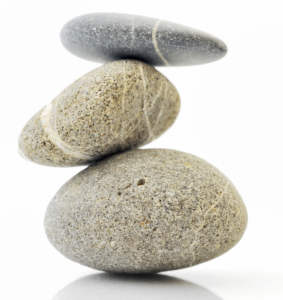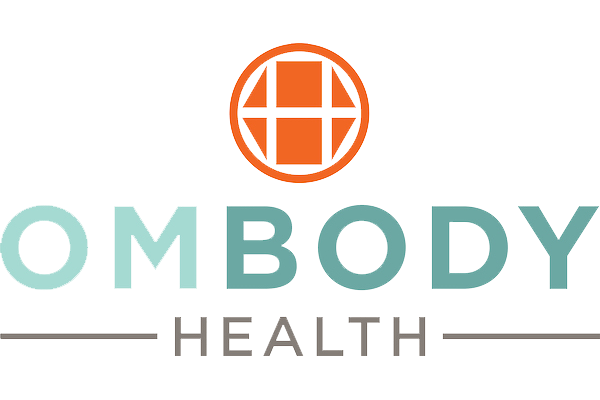One of the best decisions I’ve made to date is to make radical self-care, ritualistic stillness, and spiritual practice non-negotiable parts of my daily routine. I choose to put these things first, not because they make me more productive or healthier (although they certainly help with this), but because they make me feel more fulfilled, present, and satisfied with my life.
This is not a post about the benefits of meditation and spirituality, but about ways of thinking and behaving that will help you gain more fulfillment from life, while still ensuring that everything gets done (or at least the important things).
When we make time for what’s important to us, the rest either falls into place or falls away.
When we make time for what’s important to us, the rest either falls into place or falls away. And sometimes the latter is necessary; otherwise, we risk looking back on our lives someday when we’re old and grey and regretting that we spent most of our time checking things off our to-do lists.
Productivity vs. Fulfillment
Recently, I’ve practiced being more discerning about what to-do list tasks I choose to do, what I choose to delegate, and what I choose to let go of. As I pay more attention to how I spend my time, I’ve realized that while checking items off the list may feel good and productive (the simple act of crossing something off triggers reward centers in the brain that gives us a short term buzz), the busyness and lack of presence associated with this way of thinking zaps my fulfillment and blinds me to the richness and beauty of life.
…while checking items off the list may feel good and productive, the busyness and lack of presence associated with this way of thinking zaps our fulfillment and blinds us to the richness and beauty of life.
This leads to the first key practice to achieve more fulfillment in life: the importance of connecting with why we do the things we do. One of my mentors, Tony Robbins, outlines this beautifully in his Time of Your Life audio program where he teaches his RPM planning method.
The point here is that in order to gain fulfillment from all that we do in a day, we must be deeply connected to why we’re doing it! All too often we are so focused what we have to do and completely disconnected from both why we choose to do it and the result we’re after.
Also, I’ve noticed that when I focus on the task alone (this is especially true for tasks I have decided that I don’t like to do) I am more easily frustrated, resentful or resistant. Rather than doing from a place of appreciation and love, I find myself doing from a place of frustration or stress; thus, my day becomes less enjoyable and fulfilling, and what’s worse, I exude a low frequency energy that can infect those around me! I don’t know about you, but this is not the way I choose to show up in the world.
Here’s a simple example: Going to the grocery store. This may be something that you enjoy doing, but chances are that if you’re going at the end of a long day the voice in your head might be saying things like: I wish I didn’t have to do this right now. Why not just order pizza?
However, if you focus on the result you’re after by going to the grocery store, your inner dialogue may change. Likely you’ve decided to go to the store rather than order out for a reason! Maybe it’s important to you to nourish yourself and your family with beautiful, healthy, fresh food so that you don’t get sick, gain weight, or feel tired all the time. Or maybe you are saving money for that amazing trip you have planned later this year. Or maybe cooking is a form of self-care, creative expression, and relaxation for you.
These are just a few reasons I might chose to go to the store rather than order out. Now it’s your turn: identify what result you’re after when you choose to go to the grocery store after a long day of work rather than order take-out. And next time you find yourself in this situation and that little voice inside creeps in with resistance, shift your focus to the result you’re after, your reason for doing it (in the words of Simon Sinek: “you’re why”) and notice what happens.
This way of thinking can (and should) be applied to everything that you do. Why do you get up in the morning and go to work? Why are you scheduling that meeting? What is the result you’re after?
Additionally, we must learn to recognize when to-do tasks are not essential to our progress or project, or when there is a simpler, more efficient way to accomplish the same result. For example, you may choose to delegate the grocery store task to a child, spouse, shopping service like Hannaford to Go, or door-to-door delivery service like Instacart. Or you may decide that the meeting you’re about to schedule or attend has no clear outcome and make a choice to wait until either you or the meeting organizer can communicate a clear result. Maybe you need to gather more information, or maybe the meeting can be forgone all together.
We’ve all heard the saying “less is more”; sometimes letting go of or delegating to-do tasks leads to far more fulfillment, satisfaction and even productivity than checking them off.
Big Rocks vs. Little Rocks
 The next key practice for achieving more fulfillment in life is to look at what you do in terms of its level of importance to you.
The next key practice for achieving more fulfillment in life is to look at what you do in terms of its level of importance to you.
There is a classic visual used in the coaching world that I find helpful. Imagine you have a large jar. Next to the jar are a few big rocks, a pile of pebbles, and bucket of sand. If you poor the bucket of sand into the jar first, you may be able to fit a few of the pebbles in, but the big rocks certainly won’t fit. However, if you put the big rocks in first, next the pebbles, and lastly the sand, everything fits!
In this example, the big rocks represent the things you want/need to do to do to feel fulfilled personally and professionally. The pebbles represent the tasks you do in your daily life (attending that meeting, writing that article, making that phone call, folding the laundry, washing the dishes, going to the grocery store, etc.), and the sand represents the things you must do (eat, sleep, shower, feed the kids and pets, etc.).
This example illustrates how easy it is to fill our day and eventually our life with tasks and musts, yet remain unfulfilled. If this is you, don’t be hard on yourself, just take time NOW to identify your big rocks. What do you need to do each day to connect with the richness of life? What do you value and how can you better align your life with the things you care most about? Some examples may be: taking time to contribute to a cause outside of yourself, fostering deeper connection with the people you love, personal growth, meditation, exercise, learning a new skill, working with a coach, etc.
Final Thoughts
If you recall from the first paragraph, one of my big rocks is self-care and spiritual practice. What makes this a big rock is that when I do it, I’m more connected with myself, others, and my purpose for being alive (my why). I spend more of my time in awe and gratitude for the richness and beauty of life rather than focused on all the things I have to do.
Silent reflection in the morning also allows me space to consciously connect with the results I am after for the day ahead and why I must achieve those results. When I do this, I get the most important things done and at the end of the day I feel more fulfilled.
We can all use a little help.
I would never be where I am without the coaches and mentors who have helped me squeeze more fulfillment, joy and productivity out of my life.
I can help you…
- Hone the skill of knowing and achieving the results you want both day-to-day and long term.
- Close the gap between where you are and where you want to be.
- Implement mind body practices that will rewire your brain and body to be less stressed, more focused, and more connected to your true nature and intuition.
- Explore simple lifestyle tweaks that will boost your energy and vitality and help you feel your best.
Client Testimonial:
“I felt like a hamster on wheel, just spinning and spinning but not really getting anywhere or accomplishing anything, personally or at work. After just a few meetings with Allie, I realized how different her program was to anything I tried before. Instead of being that hamster on the wheel, I found myself stopping and enjoying my life. I started to feel changes in my body, instead of ignoring it. I naturally began to put more focus on me and what I need. And with that mindfulness came greater acceptance and appreciation for myself and my life.”
– Leisa
About the Author
Allison Andrews, M.Ed, Certified Health Coach, Certified Yoga Teacher, Corporate Wellness Specialist
 Allie is passionate about helping employers create raving fan cultures and busy people reclaim themselves to up-level their wellbeing, performance and influence.
Allie is passionate about helping employers create raving fan cultures and busy people reclaim themselves to up-level their wellbeing, performance and influence.
Allie has studied and trained under world renowned coaches and teachers within a variety of disciplines, including: Health Coaching through the Institute for Integrative Nutrition, Results and Business Coaching with Tony Robbins, High Impact Speaking with Dale Carnegie, a 10-day silent Vipassana Meditation Course, a 200-hour Yoga Teacher Training in India, Permaculture and Systems Design, Environmental Science, and both a Masters in Education and a Certificate Program in Corporate Wellness.
Allie uses her eclectic background and extensive experience to work with individuals and organizations to bring people back into the driver’s seats of their lives through mindfulness, stress reduction and work/life tweaks that are aligned with the results they want.

